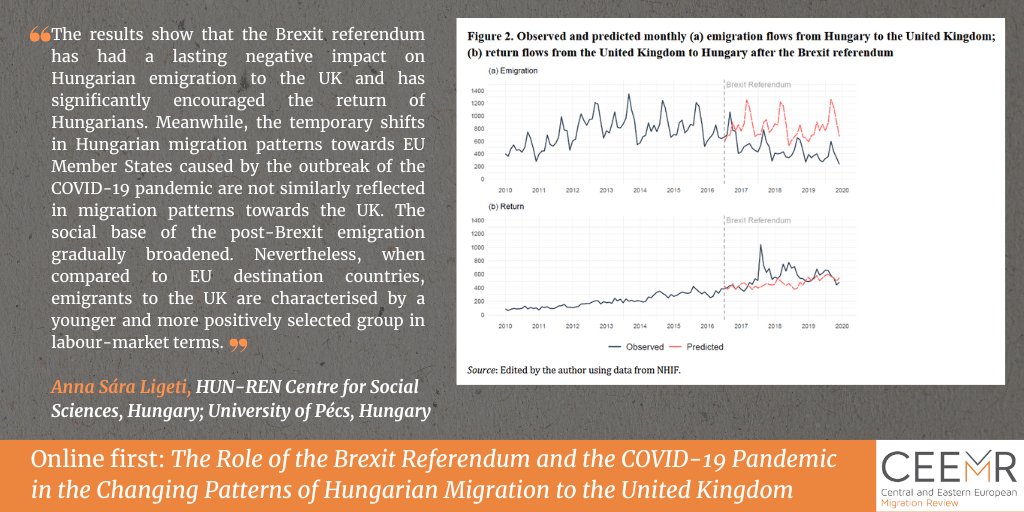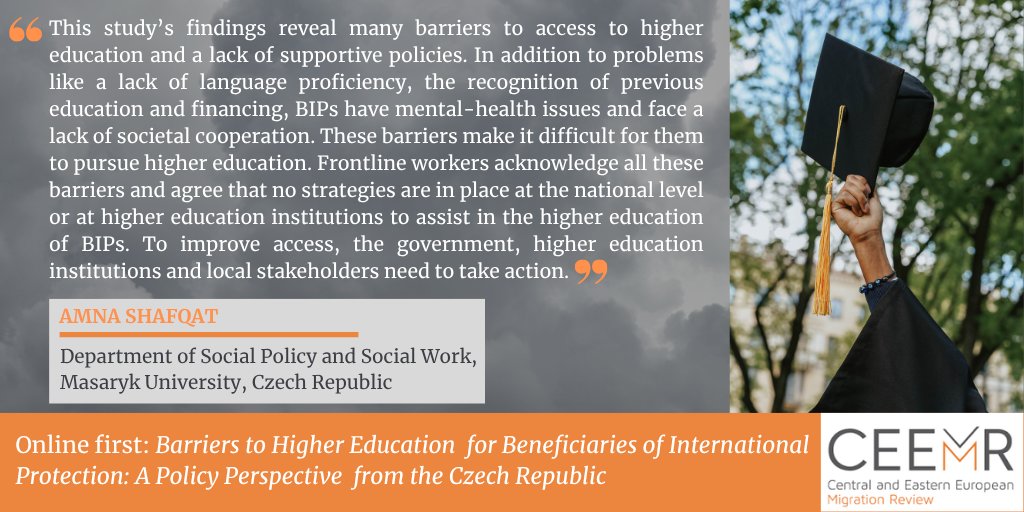
Central and Eastern European Migration Review
@ceemigrationrev
Publishing #openaccess and #peerreviewed research on migration within, into and out of the Central and Eastern Europe region.
ID: 1189647459682791424
http://ceemr.uw.edu.pl 30-10-2019 20:57:28
384 Tweet
2,2K Followers
1,1K Following

New: Papp, Kovács, & Kováts from HUN-REN Centre for Social Sciences, Budapest, drawing on Hungarian Diaspora Policy, describe three distinctive categories of Hungarian emigrants regarding how they undergo processes of diasporization. Link: bit.ly/4j2CE9v






Aadne Aasland (Oslo Metropolitan University) & Oleksandra Deineko (Oslo Metropolitan University & Karazin University) point out that #Ukrainian refugees in #Norway often decide to leave this welfare state due to the feeling of loyalty to their homeland. More: bit.ly/4m5zqTw
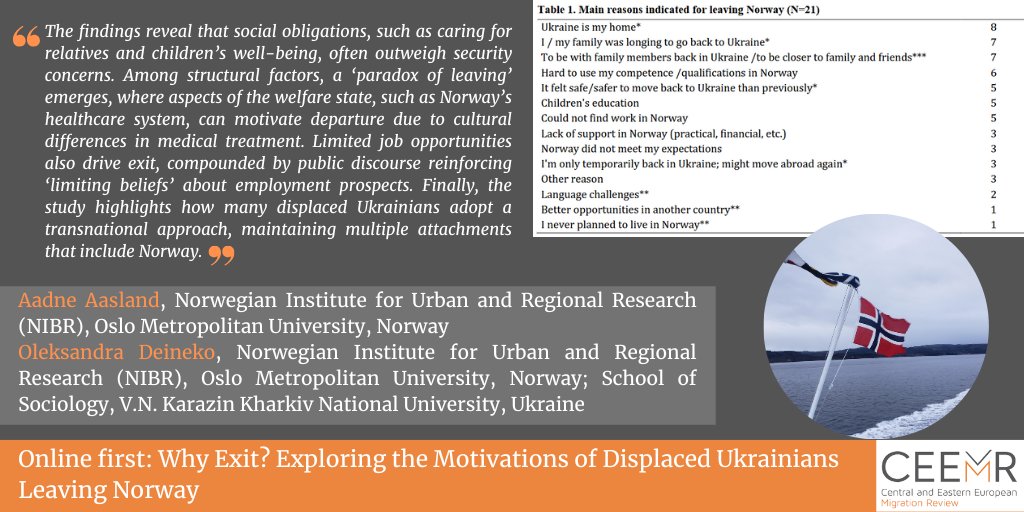


Waterbury (Ohio University) argues that hybrid regimes co-opt and control #diaspora organisations through curtailing opposition access, expanding patronage networks, & establishing ideological hegemony through media activites - for their geopolitical goals: bit.ly/4mDWyJl
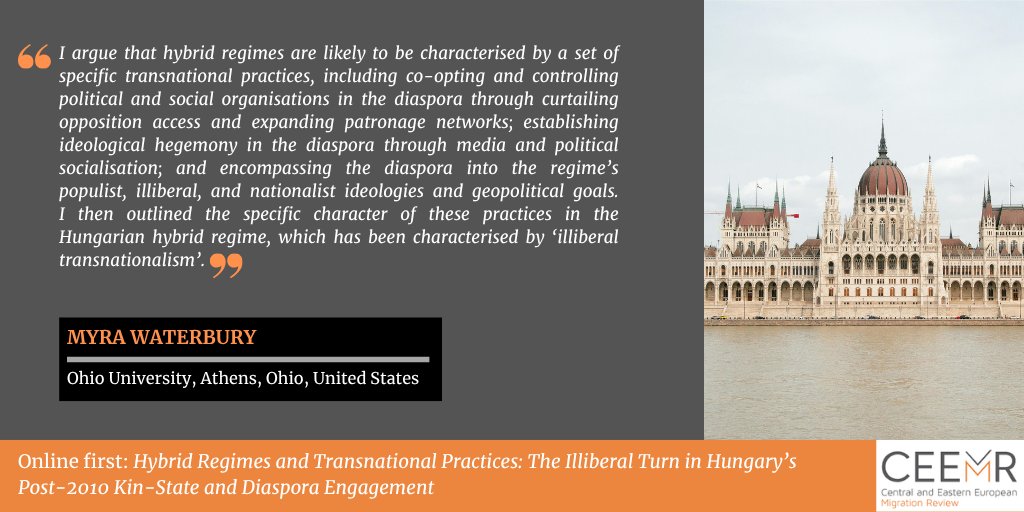

Pavić, Žanić & Bendra, drawing on their research in #Croatia, point out that the intention to stay in a peripheral local community is related to higher place attachment, traditionalism, and a lower preference for personal autonomy: bit.ly/45gSeZp KNJIŽNICA INSTITUTA PILAR/INSTITUTE PILAR-LIBRARY
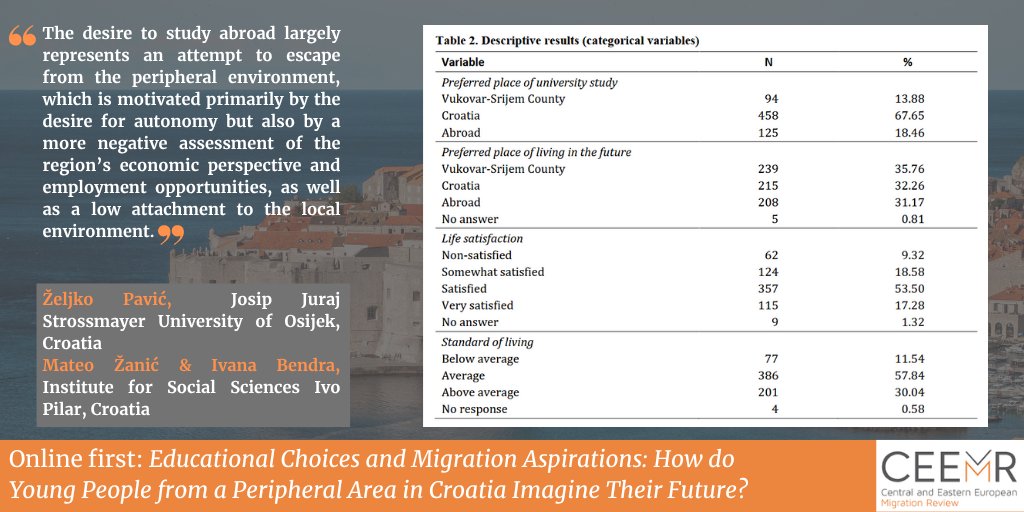

Anna Sára Ligeti (HUN-REN Centre for Social Sciences, Budapest, University of Pécs) draws a methodological conclusion that interrupted time-series analysis methods can be employed to quantify the impact of significant future events and policy changes on migration processes: bit.ly/450lTqR
